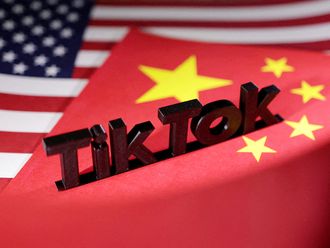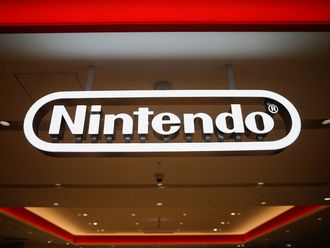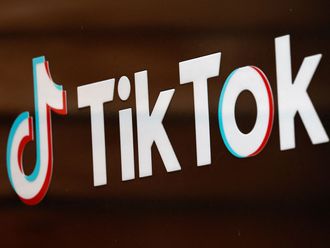Herb and Martha Oberman have made a good living on eBay for 17 years, selling paper collectibles like a $5,000 limited-edition menu from the Hotel Bel-Air, the Los Angeles hotel once frequented by Marilyn Monroe.
But the Dallas couple felt that their vintage offerings would also do well with a younger, hipper and more global crowd than their eBay store was attracting. So this year, when they learnt that a slick online marketplace called 11 Main was looking for vendors, they jumped at the chance to try something new.
“When I first read about 11 Main, I had absolutely no idea what it was,” Herb Oberman said. Then he found out that it was backed by a major company in China. “I have to say we were very, very excited,” he said.
The Obermans are among the early vendors joining 11 Main, a creation of Alibaba, the Chinese e-commerce giant that just filed to go public in New York. Part eBay, part Amazon, the site — Alibaba’s first to specifically aim at US shoppers — is not yet open for business. But early screenshots of the site provided by vendors offer some clues of the Chinese company’s nascent plans in the United States.
Gone are the miscellany and fake merchandising that have marred Alibaba’s global mass-market shopping sites in China, like Tmall. In their place on 11 Main are carefully selected items — laid out in a clean, airy style that combines elements of Pinterest and Instagram. The name is intended to evoke the idea of Main Street USA. It is a strategy that suggests that Alibaba is willing to reinvent itself as it enters the fray here against the likes of eBay, Amazon and Etsy.
So far, Alibaba is just dipping its toes into the US market. Despite its financial resources, the company is not spending heavily on 11 Main. It is handpicking vendors through a selective vetting process. It is also pursuing small, targeted investments in consumer-focused start-up firms, rather than making big acquisitions as it is doing in China. The initiatives represent a tiny piece of Alibaba’s overall business, which handled more than $200 billion in goods last year.
But taken together, these efforts provide a window into Alibaba’s plans for the world’s largest market for online commerce. Being careful not to be seen as overambitious in the United States, the company is developing contacts, gleaning information about consumers and closely studying the leaders.
“It’s impossible to dismiss them,” said Carlos Kirjner, an analyst at Bernstein Research. “They are just too big.”
The heart of Alibaba’s efforts is a small group based in Silicon Valley that is acting as both a venture capital firm and an e-commerce company.
To build up its 11 Main site, headquartered in San Mateo, Alibaba has recruited seasoned hands in e-commerce from the likes of eBay, Gap and Wal-Mart. A separate office in Santa Clara is tasked with making investments in the United States and Europe. The goal is to find Internet start-ups with business models that it could learn from — and maybe own outright someday.
“They want to be plugged into Silicon Valley,” said one person with direct knowledge of the company’s strategy. “They want to back good teams, see the newest trends, and the way you do that is by funding new companies.”
During the past several months, the investment team has arranged for Alibaba to take stakes in a half-dozen companies. It participated in a $250 million fund-raising round for Lyft, a car ride start-up that competes with Uber, and it invested $75 million in ShopRunner, an e-commerce delivery service led by a former Yahoo chief executive, Scott Thompson.
Developing contacts
“They are staying in touch, developing their contacts, and eventually some of these companies could become acquisition candidates or partners,” said Sameet Sinha, an analyst at B. Riley & Co. “That’s their M.O.”
To lead the effort, the company hired Michael Zeisser, a Frenchman who led Liberty Media’s digital commerce division, overseeing properties like ProFlowers.com and Evite.com. One of his inspirations for the investment strategy is Facebook, which has become a platform of sorts by keeping acquisitions like Instagram and WhatsApp as separate brands.
Unlike a venture capital firm, Zeisser is not concerned about cashing out when one of his investments goes public in an initial public offering of stock. This frees his team to move easily from taking minority stakes to full-on acquisitions. He has told entrepreneurs that Alibaba will bend over backward to help out their businesses.
“There may be synergies, but there may not be,” said one person with knowledge of Alibaba’s efforts. “They want to learn from these companies, and if one day the start-ups want to enter China, maybe they can help them.”
Alibaba recently led a $280 million investment in Tango, a messaging service based in Mountain View, California, that competes with WhatsApp — which Facebook bought this year for more than $16 billion — and Tencent’s WeChat. Alibaba viewed Tango as a promising player in an important market, and spent time courting the start-up. Jack Ma, Alibaba’s chairman, invited the Tango’s founders to meet him at his offices in Hangzhou, while its vice chairman, Joseph C. Tsai, held long conversations about strategy over dinners.
Even after closing on the investment, Alibaba’s team has continued to consult, according to Eric Setton, Tango’s co-founder and chief technology officer. Setton speaks to executives like Zeisser almost once a week.
“They’ve been very generous with their time, and we’ve been able to run a number of ideas by them,” Setton said.
Another Alibaba investment was in 1stDibs, an online marketplace for high-end goods like a $32,250 Cartier brooch. Zeisser had long been friends with the chief executive of 1stDibs, David Rosenblatt, and shortly after taking the Alibaba job, he began discussing how the two could cooperate.
While 1stDibs wasn’t looking to raise capital, the start-up saw the benefits of an alliance with an e-commerce player, including one that could aid future efforts to expand into China.
“It’s helpful to have the world’s biggest marketplace in our corner,” Rosenblatt said.
Within weeks, Alibaba closed on an investment of $15 million.
“They are going to expand outside of China and potentially try to get a foothold in the US,” said Victor Anthony, an analyst at Topeka Capital Markets. “But at these initial stages, it’s somewhat limited.”
This shows Alibaba’s understanding of its place in the market. While Alibaba may be one of the world’s largest online retailers, in this country, the name is more likely to conjure up images of folk tales than e-commerce behemoths.
“It would be a little naive to think we can simply export our people and our business models into other markets, and specifically into markets as mature as the US,” said one person close to Alibaba.
Long shadow
How Alibaba would differentiate itself in a crowded market for online shopping remains unclear. Amazon casts a long shadow. Start-ups like Gilt and One Kings Lane have found good niches. And while big-name US retailers like Wal-Mart and Best Buy have developed strong e-commerce operations, they have failed to threaten the dominance of Amazon and eBay.
“To think they could compete with the likes of Amazon, eBay and Google on their home turf is a bit of a stretch,” said Sinha of B. Riley. “They can’t just spend $100 million and say they’re going to enter the US That’s not going to work. There’s zero brand presence.”
That is one issue that Alibaba may be trying to address as it prepares to start 11 Main.
To appeal to shoppers in the United States, 11 Main appears to be aiming at upscale shoppers by creating a simple, easy-to-navigate site featuring high-quality merchandise and an easy payment system. That approach has piqued the interest of local vendors, who say they would welcome shaking up an increasingly staid e-commerce industry long dominated by the usual names.
In 2010, Alibaba acquired the eBay listing tools Auctiva and Vendio, which gave it access to more than 250,000 eBay sellers who were responsible for an estimated 5 to 10 per cent of eBay’s listings at the time, according to Ina Steiner, co-founder of EcommerceBytes.com, a news site for online retailers. The 11 Main site now taps Auctiva’s technology to allow sellers to upload their existing eBay listings to 11 Main.
That direct tap into a major competitor, along with 11 Main’s careful selection of vendors for its site and Alibaba’s great financial resources, could give 11 Main the clout and means to differentiate itself from the established competitors here, Steiner said.
“There’s absolutely space in the US marketplace for Alibaba,” Steiner said. “EBay doesn’t necessarily attract younger shoppers or high-end shoppers. If 11 Main can come up with a new marketing image that would appeal to a whole new set of shoppers, they’d do well.”
And 11 Main is offering far better terms to its vendors. It has asked vendors for a 3.5 per cent sales commission to list on the site, compared with almost 10 per cent for eBay.
“EBay is an 800-pound gorilla,” said Herb Oberman of Dallas, who lists about 10,000 paper memorabilia items on his eBay site and also sells on Amazon. “It would be nice to see a 2,000-pound gorilla in the ring with them.”
— New York Times











